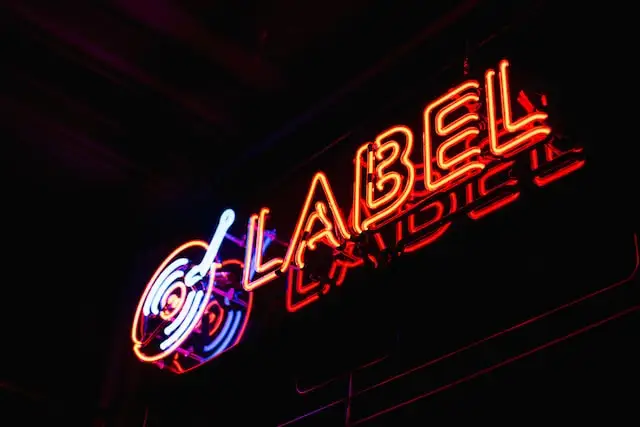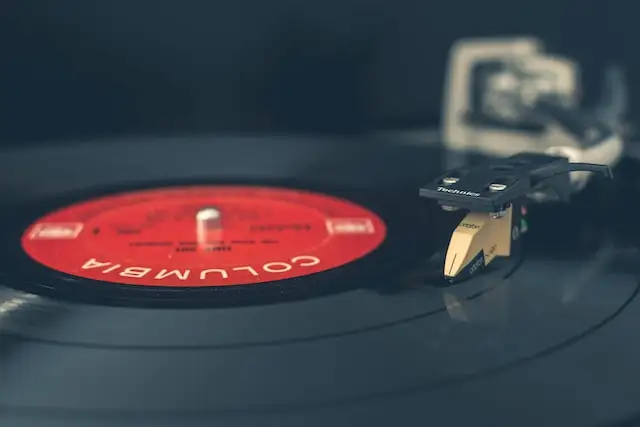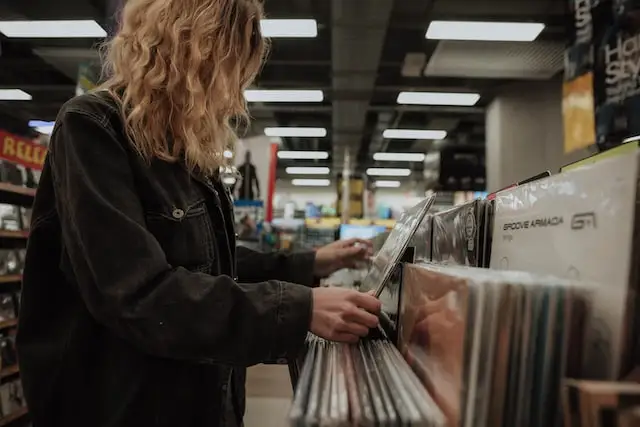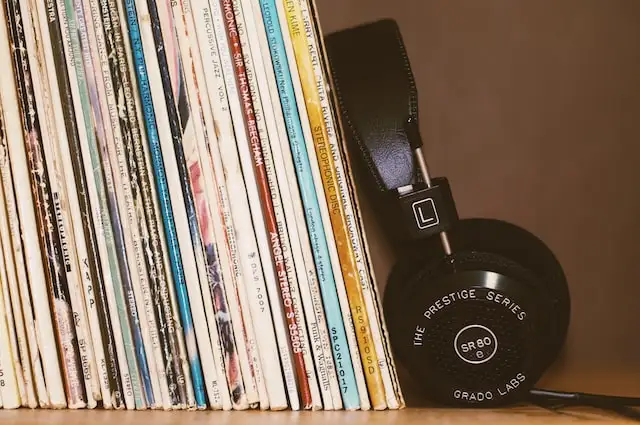There are many ways to turn your passion for music into a career, and learning how to start a record label is one of the many opportunities within the music industry. Not only do you have the opportunity to uplift other artists as a label owner, but you can also create an environment where your own art can flourish.
However, there's a lot of work that goes into starting a record label that isn't for the faint of heart. Below, we'll detail how to build a successful independent record label so that you can determine whether it's the right path for your desires.
Why Would You Want To Start A Record Label?

Before we jump into the logistics behind starting a record label, it's important to understand your reasoning behind wanting to get started. Like most jobs in the entertainment industry, running a successful independent record label is no easy feat and takes a lot of time, unpaid work, and in many cases, a leap of faith.
You're responsible for the success of all of the artists on your roster, which makes this job incredibly active and based on unpredictable schedules and hours. You'll be primarily depending on streaming revenue from artists and potentially a portion of sponsorship and sync placements, but outside of that, you'll need to secure your own funding.
This could be from outside investment, serving as an imprint to a larger label, or finding funding from government or arts organizations. The reality for more independent record label owners is that you're going to need to put a lot of your personal assets into building up this company. Starting a record label that's profitable doesn't happen overnight unless you happen to be an artist who's regularly raking in millions of streams and brand deals.
To start a record label, you're going to need patience and perseverance. While the record label business isn't the most forgiving, it does come with a lot of perks for passionate indie artists and music enthusiasts. Running your own indie label as an artist means you have full ownership of your rights and control over the overall ethos of your work and the record label behind it.
Record labels by nature have to build meaningful connections with the press, distributors, and other power players in the industry which is a surefire way to secure a lifelong spot within the music industry.
Perhaps the most rewarding opportunity given to record labels is the chance to nourish and support up-and-coming artists you truly believe in. In short, if you're interested in the indie label business structure to make money, this isn't the place for you. However, if you're excited to take on your own corner of the music industry and truly support up-and-coming artists, then building a music label is an awesome investment in your career.
How To Start A Record Label In 7 Steps

Are you ready to take the plunge and start a record label? Here are seven steps to help you learn how to start a record label and make your dreams a reality.
1. Make Sure You're Ready To Take The Plunge
Record labels have several arms that cater to supporting every aspect that goes into building a proper record release. Some of those components include:
- Recording: Record labels have their own recording engineers and studios, or connections to trusted professionals in the business to help artists record and produce their records. In some cases, these services might not be needed, for instance, the artist in question may produce their own work.
- Art Direction: Record labels usually have connections with graphic artists and creators who can help with crafting cover art, making merchandise designs, and building out promotional materials tied to a release. These experts help artists translate their auditory art into a visual one.
- Mentorship: The music business is admittedly a tough one. Record labels can help provide mentorship and potentially legal advising.
- Press and Promotion: Record labels build relationships with press and blog outlets to help earn their artist coverage during the release cycle.
- Digital Distribution: Whether you're a part of major labels or indie labels, all label business structures are crafted around distribution, especially in the current age of streaming. A record label acts as a digital distributor for their artist, delivering music to platforms like Spotify and Apple Music. Indie labels and artists with more resources may still print physical goods like vinyls and CDs, though this is much rarer for new music or artists who are still establishing themselves within the music industry. Labels can also help execute or polish pitches sent for consideration for editorial playlists.
Before you even begin to shop around for artists, you need to have a solidified business structure for each portion of the production process. Remember that all of these services will tap into your bank account too. Artists aren't able to bring in any profit, if they are, to begin with, until after the music is released.
You need to make sure you're financially secure and have enough capital to support not only the costs that come with supporting artists but also supporting yourself and the cost of doing business.
If you don't have recording equipment, you'll need to invest in your setup and get insurance for your setup. You should expect to eat losses for a couple of years as an indie label while you build up your reputation and find your keystone artists. Many label owners hold another part-time or full-time job in or outside the industry to support themselves while creating their vision.
2. Register Your Business
Remember that running a music label isn't unlike any other business. You need to register your label as an LLC so that you can take on a business bank account and secure funding for your artists.
Make sure you spend some time thinking about the name and mission of your label. It shouldn't be too specific so that you can branch out to different types of music as you progress, but you should still have a clear mission in mind. What types of artists do you want to sign? Will your label name hold 10 years down the road?
Check to make sure you can grab your preferred music label name on social media and online domains. Once you've found a unique and descriptive name for your music label, register according to the business laws in your state. You'll also need to account for taxes, accounting sales, and report credit accounts as a registered LLC. All transactions for your label should be separated from your personal brand. You should have a business credit card and bank account to keep these costs distinct before you start bringing more people into the company.
Once you've taken care of the logistics, you should find other experts to help you run different divisions within your label. Of course, these team members should also be under the impression that it's going to take a lot of hard work to make money from a budding label. Everyone on your team should be in it for the right reasons, too.
3. Build Your Brand
Once you've registered your business, you really want to take the time to sit down and figure out your mission statement. Who is your label's music for? What do your fans gravitate towards? Where do you want to be in one year? Five years? Defining these milestones will make it easier for you to attract and secure the right types of people to your business.

You'll also want to invest time in building up your website and social media profiles to boost your marketing efforts. Create an online atmosphere that encompasses the spirit of your label's name. While not all new labels need a strong social media presence to earn artists, it certainly helps your pitching power and will build your credibility as a brand.
You should also design a logo incorporating your business name so that you have consistent branding on every message you create. Start networking with artists and industry professionals within your label's genre wheelhouse. In the meantime, continue to secure as much funding and resources as possible so that you can properly support your future roster of artists.
4. Find Some Artists
The next step after establishing the basic business foundation around your label is to find some artists! It's important to search for creatives that fit within your genre of music that have a proven track record with an engaged fanbase. You'll still need to do your part in developing your artists, but finding musicians that have done some of the work of building the beginnings of a fanbase is going to make your job a lot easier.
You're also going to need to brush up on your legal contracts and work with a music lawyer to draft up agreements that make sense for different types of artists hosted on your label. As a label, you're responsible for collecting and distributing your artist's royalties as well, so make sure you have a payment portal and the framework necessary to track royalties.
When you bring in an artist for a prospective deal, offer a clear layout of the services you provide and answer any questions the artist may have regarding your arrangement. All deals need to be executed with a written contract signed by both parties explicitly laying out the terms of each deal from pre to post-release.
5. Building Album Campaigns
There's a lot that goes into building a proper album release and executing it. As an indie label owner, you will be responsible for guiding your artists through the process and helping them to develop a release strategy that makes sense for their genre of music.
Along with the music, you'll need to develop art assets, promotional photos, music videos, or visualizers along with social content to help promote your releases. You also might help your artists secure interviews, press features, book shows, and meet with other industry professionals in your network.

You need to build a release schedule months out with each artist and work with them or their managers directly to make sure that nothing falls through the cracks while doing business. It's easy to get lost in the shuffle, so stay as organized as possible.
6. Digital and Physical Distribution
Labels need to help artists collect royalties with the help of performance rights organizations and get their music up on streaming platforms. Typically, indie and major labels partner with digital distribution services through another partner or directly with the service to get their music up on digital streaming platforms.
Physical distribution (CDs, vinyls, and cassettes) is done separately by partnering with other companies. This can also involve distributing artist merchandise and other goods related to a music release.
Some music labels also have an in-house sync division or partner with a sync house to earn music placements in traditional media formats like advertisements, films, and TV shows. Once a record is released, labels work with artists to get their music out to as many places as possible and begin preparation for the next project.
7. Learn As You Go
Running a successful record label is a fast-paced, ever-changing experience. Seek out tools to help you continually support your artists, and don't be afraid to seek out mentorship or advice from those further along in the industry. There isn't one cut-and-dry formula when it comes to building a successful label.
All in all, learning how to run your own label takes a lot of patience, perseverance, hard work, and a lot of times, luck. So long as you have passion and take measures to support your artists, you'll be able to find your way within this fast-paced industry. And don't forget to enjoy building your company and supporting your team of amazing artists along the way!





